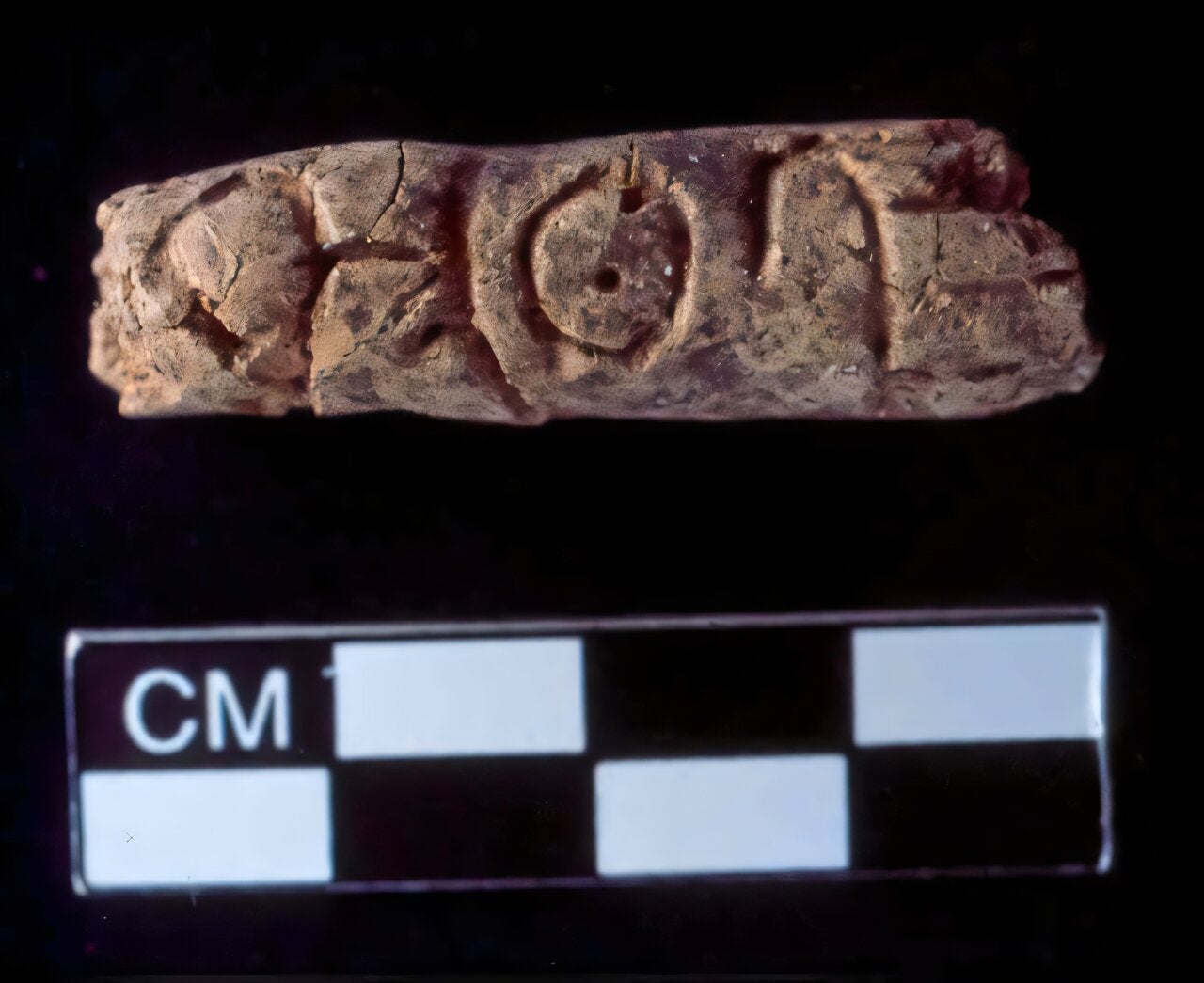Archaeologists unearth oldest alphabet from ancient tomb
Alphabetic writing found etched on clay cylinders unearthed from tomb in Syria
Your support helps us to tell the story
From reproductive rights to climate change to Big Tech, The Independent is on the ground when the story is developing. Whether it's investigating the financials of Elon Musk's pro-Trump PAC or producing our latest documentary, 'The A Word', which shines a light on the American women fighting for reproductive rights, we know how important it is to parse out the facts from the messaging.
At such a critical moment in US history, we need reporters on the ground. Your donation allows us to keep sending journalists to speak to both sides of the story.
The Independent is trusted by Americans across the entire political spectrum. And unlike many other quality news outlets, we choose not to lock Americans out of our reporting and analysis with paywalls. We believe quality journalism should be available to everyone, paid for by those who can afford it.
Your support makes all the difference.The oldest known alphabetic writing has been found etched onto finger-length clay cylinders unearthed from a tomb in Syria.
Researchers at the Johns Hopkins University in the US dated the writing to around 2400BC, preceding other known alphabetic scripts by about 500 years.
The finding, to be presented on Thursday at the annual meeting of the American Society of Overseas Research, upends what we know about the origin and evolution of alphabets, and what they meant for early civilisations.
“Alphabetic writing changed the way people lived, how they thought, how they communicated,” archaeologist Glenn Schwartz, who was behind the clay cylinder’s discovery, said.

This form of writing may have revolutionised language by making it accessible to people beyond royalty and the social elite, scientists said.
Dr Schwartz and his team study how early urban areas in the Near East developed throughout Syria, and how smaller cities emerged in the area.
The team has been involved in a 16-year archaeological excavation at Tell Umm-el Marra, one of the first medium-sized ancient urban centres known to have popped up in western Syria.
At this site, archaeologists have previously uncovered tombs dating to the Early Bronze Age between 3500 and 2000BC.
One such well-preserved tomb was found to contain six skeletons, gold and silver jewellery, intact pottery, cookware, and a spearhead.
Amid these artefacts, researchers found four lightly baked clay cylinders with what appeared to be alphabetic writing etched onto them.
“And this new discovery shows that people were experimenting with new communication technologies much earlier and in a different location than we had imagined before now,” Dr Schwartz said.
Based on small perforations on the clay cylinders, scientists suspected it was likely tethered onto another object and acted as a kind of label.
“Maybe they detail the contents of a vessel, or maybe where the vessel came from, or who it belonged to,” Dr Schwartz explained.
“Without a means to translate the writing, we can only speculate.”
Researchers confirmed, using carbon dating techniques, that the tombs, the artefacts, and the writing were all from around 2400BC.
This places the origin of the artefacts about 500 years before the previously known oldest alphabetic writing.
“Previously, scholars thought the alphabet was invented in or around Egypt some time after 1900BCE,” Dr Schwartz said. “But our artefacts are older and from a different area on the map, suggesting the alphabet may have an entirely different origin story than we thought.”

Join our commenting forum
Join thought-provoking conversations, follow other Independent readers and see their replies
Comments